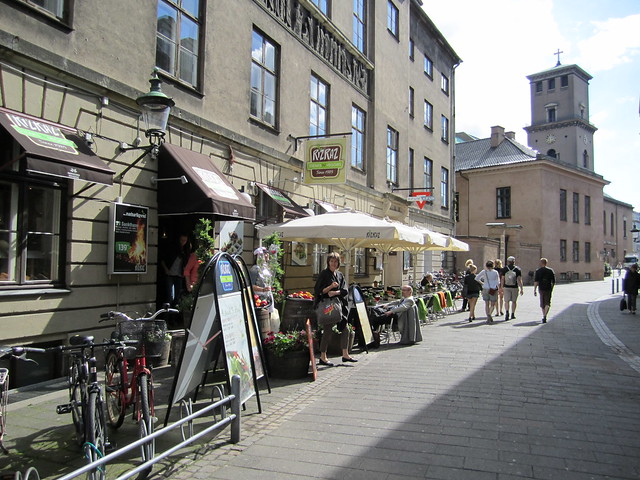
Community Transit recently sponsored a community forum at the Lynnwood Convention Center on 8-80 Cities: Vibrant Cities. About 50 people were in attendance to listen to keynote presenter Gil Penalosa’s talk on what it takes to make vibrant and healthy cities. Gil is the Executive Director of the Toronto-based organization 8-80 Cities. He was formerly the Commissioner of Parks, Sport and Recreation for the City of Bogota in Columbia.
For many urbanists, the message that Mr. Penalosa brought is nothing new. But what made his remarks interesting is that it was geared towards a general suburban audience. And, that is exactly where this talk was took place–in a suburban setting with all of its attendant challenges.
The irony was very present as I travelled by car to attend this talk, arriving late because of severe traffic–and admittedly getting slightly lost. The site of the convention center sits near the junction of I-405 and I-5, and serviced with limited transit options. So, naturally public transit to this event was not a reasonable choice for me given the commute constraints. And to add to the stereotypical suburban problems, the site was plagued by inadequate onsite parking facilities, encouraging attendees to park on neighboring properties.
 So with that backdrop, I sat back and listened to a gently laid out case for cities that take on characteristics of vibrancy and accommodating more walking and biking. The first thing I heard was the idea to lower general vehicle speeds on neighborhood streets to 20 mph. His rationale for reducing speeds had to do with safety. The data that he presented showed that speeds above 20 mph radically increased the risk of death to pedestrians should they be struck. Although, he did note that difference between arterials and local streets shouldn’t be discounted when applying such rules.
So with that backdrop, I sat back and listened to a gently laid out case for cities that take on characteristics of vibrancy and accommodating more walking and biking. The first thing I heard was the idea to lower general vehicle speeds on neighborhood streets to 20 mph. His rationale for reducing speeds had to do with safety. The data that he presented showed that speeds above 20 mph radically increased the risk of death to pedestrians should they be struck. Although, he did note that difference between arterials and local streets shouldn’t be discounted when applying such rules.
Mr. Penalosa talked about walking and cycling as a right, not just some urban frivolity. He then segued into a discussion of the investment in bikeways and walking pathways, and just how meager such investments are in most cities. He argued that often these investments are only used to quell gadflies rather than as part of a real substantive approach to changing how the city works.
Throughout the talk, Mr. Penalosa showed many slides of cities in Europe, Asia and South America where cities large and small are instituting these ideas and principles to create showcases for urbanism. He also spent some time talking about getting from talking to doing. What he means is that citizens must delve into the political realm to hold our elected representatives accountable. Citizens need to have a sense of urgency lest planners and politicians simply maintain the status quo.
In the end, Mr. Penalosa laid out the case for cities to take on the core values of his organization and the elements of an 8-80 City:
- 8-80 Cities are communities built for people;
- They reflect social equality in the public realm and promote sustainable happiness;
- They nurture our need to be physically active by providing safe, accessible and enjoyable places for everyone walk, bike and be active as part of our daily routine;
- They recognize that people are social creatures and prioritize human interaction by fostering vibrant streets and great public places where people can rest, relax and play; and
- 8-80 Cities encourage sustainable and healthy lifestyles for everyone regardless of age, gender, ability, ethnicity or economic background.
I think Community Transit should be acknowledged for recognizing that their future success depends on spatial changes. In order to better serve their constituent population, communities in Snohomish County will need to transform away from the conventional suburban model and instead to an 8-80 model. This inspirational and gentle talk did get people talking about this issue well after the presentation ended, and in that way, it’s a good starting point for that change.
Many of Mr. Penalosa’s points from his hour and a half presentation can be condensed down, and for a shorter version of these, check out his TedTalk.

Charles Cooper
Charles grew up in the Seattle/Tacoma area and after a 15-year stint in Chicago and the Midwest is happy to again make his home in the Seattle area. After experiencing large scale integrated transit systems such as Chicago's CTA, he developed an interest in improving people's lives in cities. Charles is an occasional contributor to blogs such as Seattle Transit Blog and The Urbanist. He serves on the board of the Seattle Subway Foundation.

